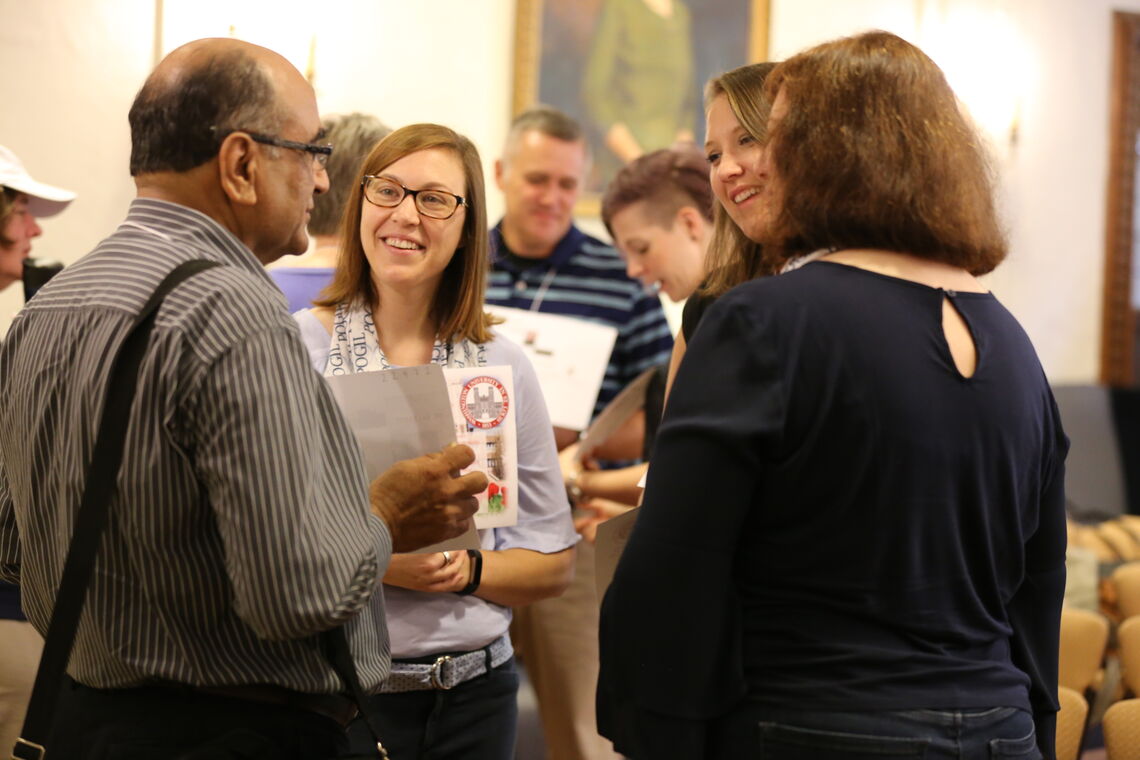Monday January 1st, 2017

We’ve got a lot of POGIL news to share and hope you are as excited as we are about what’s coming in the next several months. Please join me in congratulating this year’s POGIL PEACH award winners, Urik Halliday of the Von Steuben Metropolitan Science Center in Chicago, and Patrick Brown of East Tennessee State University. The PEACH, or POGIL Early ACHievement Award, is given annually to one post-secondary and one secondary educator, and recognizes practitioners who are relatively new to POGIL and have distinguished themselves by advancing the goals of The POGIL Project.
If you haven’t been to a POGIL regional workshop in a while, be sure to check out our new offerings. We've reimagined our course structure and created themed tracks where participants of every experience level can focus on a particular aspect of POGIL. Whether you’d like to polish your activity writing, classroom facilitation or POGIL laboratory implementation, there’s something for new and experienced POGIL practitioners alike. For full descriptions and registration, visit www.pogil.org. We hope to see you there!
Also new this summer, the inaugural National Conference for Advanced POGIL Practitioners (NCAPP) is scheduled for June 26-28, 2017 at Muhlenberg College in Allentown, PA. With a sell-out crowd of more than 90 participants, inspiring plenaries, and a high level of involvement and sharing among attendees, we expect NCAPP to create a new kind of POGIL community experience. Additionally, I want to thank our NCAPP scholarship partners and sponsors: Flinn Scientific, PASCO Scientific, and Wiley, for providing funding for six teachers to attend NCAPP, and for participating in the event. Kudos also to our hardworking POGIL NCAPP committee and POGIL staff for their efforts in making this conference a reality.
And, we’re getting ready for the POGIL National Meeting (PNM) at Washington University in St. Louis. As a working meeting to advance the strategic plan and goals of The POGIL Project, I am so grateful for the dedication, creativity and collective wisdom of the POGIL community during this 24/7 POGIL marathon. I hope to see many of you this summer at one of our many POGIL workshops.
As POGIL practitioners, donors, partners, and champions, thank you for everything you do on behalf of The POGIL Project. All of this is possible because of you and your support.
We couldn’t do it without you!
Rick Moog
Ask the Mole
Q: What is a fishbowl?
A: A fishbowl is a great way to get a look into how good facilitation of a POGIL activity can make for a more successful outcome. It is set up like a typical POGIL classroom with a few exceptions. Each table has four students (fish) that will be carrying out a POGIL activity. Those students will be assigned roles as usual. There is a table observer assigned to each table that is responsible to watch the interactions of the students. They are not to talk to the students, but watch how they interact and carry out their roles. There are also several global observers who wander about the room and not only watch the interactions of the students, but also how the facilitator interacts with all of the tables. All of the observers should be made aware ahead of time as to what the facilitator's goals and objectives for the lessons are. The facilitator should include as many "facilitator tricks" as possible, but may also want to do a few things that are not exemplary so that the observers can see what good and bad facilitation looks like. After the lesson, there is a person who leads a discussion and does an SII (Strengths, Improvements, Insights) from the observer's perspective as well as the student's perspective. —Courtesy of Beff Mancini, Steering Committee
